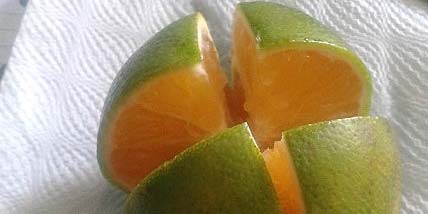Living in Honduras for ten weeks would open the eyes of any average UK consumer. Coming from a country where all foods are available, no matter the season, magically appearing on supermarket shelves in pristine condition, attractively packaged to keep it so, we could be forgiven for thinking that this abundance is reflected worldwide. However, in Honduras the situation is very different, and I have quickly become much more mindful about what I purchase and consume. This is partially for practical reasons – the hot weather means that fruit and vegetables spoil quickly, and sharing a small kitchen and fridge presents hygiene issues I would rather avoid! More importantly, however, seeing (and experiencing) the struggle of farming in Honduras has altered my perspective greatly.

So why do we waste food? We throw away seven million tonnes of food and drink from our homes every year in the UK. One of the main reasons is cooking more food than we are able to consume. Secondly, we want food that is aesthetically pleasing, therefore when it or the packaging is damaged it is often rejected to the depths of the landfill.
One of the farmers we work with, in the community of Camalote Campuca, mentioned that poor weather and productivity often forces him to find work on other farms in order to feed his family. It seems counterintuitive that there is so much food insecurity on the production side of the system, yet so much wastage at the end of the line.

During my placement I have noticed that the national volunteers seem to eat for sustenance. We have our break at 10am on the dot where many of them tuck into their ‘pupusa’. This is a thick corn tortilla made with various fillings like cheese, potatoes or meat. At first I disliked the taste of corn and opted for the wheat tortilla we know in England but now, with the hard farming days, I welcome the corn tortilla to bulk up my meals. I’m humbled by the notion of eating for sustenance.
So, despite the plethora of food choices in the UK, could one of the ideal ways to reduce wastage be to eat only for sustenance? I think that this is definitely an attitude we could adopt in our day-to-day lives. A recent example is our four hour steep climb up Mount Puca for which we were armed with one machete, ten apples, ten oranges, twenty-one avocados, corn tortillas and refried beans! This was the simplest choice that gave us the strength and energy to ascend and descend successfully - but what brought this meal alive was the joy of sharing, the social and emotional aspect of enjoying the food together:
“Pásame el chile.”, “¿Que quiere aguacate?”, “Mmm rico.”
This appreciation and air of contentment that came with our mountain picnic tells me that, whilst we are hoping to address the food system as a whole, we must not forget people’s personal connection with food. I have found that working on the farms - preparing the land and planting coffee seeds, corn, avocado and beans - I have re-connected with food and the environment around me. Most importantly I have built a more positive social and emotional relationship with food with the help of the national volunteers. Although the food here, to me, may be simple and at times repetitive, the pleasure of eating has not been removed.
The national volunteers have shown us how to make delicious “ticucos” and the ingredients are a reflection of what is available around them. On the surface I may appear to be eating for sustenance but I am actually more satisfied and enjoy what I have become hungry for. I feel more ‘free’ and capable of working towards a fair healthy food system that reduces waste and tackles food poverty.
Written by ICS Group Leader Carol Amoako-Adofo. Photos by Carol Amoako-Adofo and Tamanna Halim.



